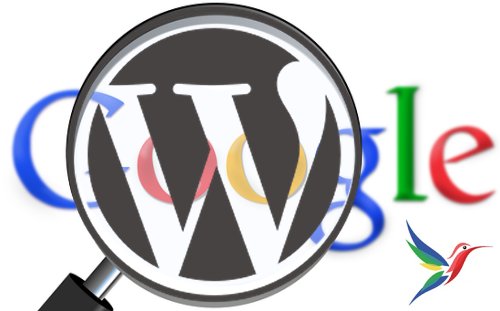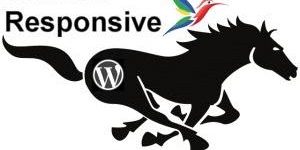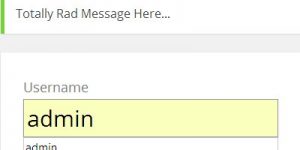Comment on WordPress SEO Tutorial by SEO Dave.

The W3C validation errors related to the Facebook Widget are because Facebook uses proprietary code for it’s javascript, there’s no way I know of to get it validating. Don’t you just hate it when big companies like Facebook and Microsoft use non standard code! Fortunately a validation error does not mean the code is broken, most errors are non damaging, the real value in tools like the W3C validator is tracking down errors that break something not removing validator errors for the sake of it.
BTW Stallion validates if you don’t use the Facebook features, but like you I like that widget, generates traffic.
I went out of my way to make Stallion use as few resources as possible for the theme features, but each feature does use resources, so more features you turn on more server resources used (this is true of any theme/plugin you use). With many Stallion features if you don’t turn them on within the various Stallion options pages they have no impact on speed. For example if you turn an ad network off the files related to that ad network are never even loaded by WordPress (it’s like they don’t exist). This is not how many WordPress themes are designed, most themes if a feature exists the code related to that feature is loaded by WordPress even if you don’t use it.
Since to use an ad network like AdSense, Chitika, Clickbank etc… requires embedding javascript that connects to the ad networks servers it’s advisable to not use all the ad networks on one site at the same time. If you run all 6 AdSense ads that’s 6 connections to AdSense to connect to their javascript, add 6 Clickbank ads that’s another 6 connections, use the Facebook widget another connection, embed YouTube videos more connections… all slowing a site down a small amount each. If something you connect to is running slow (Facebook/Twitter for example) it will slow your site down.
Run a lot of WordPress plugins, some are poorly optimised, for example I used to use a category plugin on a site with over 60,000 posts and a few hundred categories (it limited the number of categories shown), it added hundreds of extra database queries which meant it was slowing down MySQL. For a quick way to check if a plugin is generating a lot of database queries I’ve included database queries within Stallion (within the footer for those logged in, queries can be turned on/off). If you find your site generates a lot of database queries check if it’s reduced by disabling a plugin. This page as I type this shows (55 queries in 0.465 seconds) which is pretty good.
Had a quick look at your code see a lot of javascript loaded related to various plugins. Also see you use the All in One SEO Pack WordPress SEO Plugin, it adds very little to a sites SEO : see All in One SEO Pack WordPress Plugin Review. I see your tags are nofollow, that is such a bad SEO idea, you are deleting link benefit for no gain!
These so called WordPress SEO Plugins are dangerous, if they had something SEO wise I wanted in Stallion it would already be built into Stallion or I’d advise it’s use at WordPress SEO Plugins.
David


More Comments by SEO Dave
WordPress SEO Techniques
How to Noindex Paged WordPress Categories and Tags
Before I explain how to noindex paged categories and tags, first going to cover some basic SEO misunderstandings.
If you use a WordPress theme like the Stallion SEO Theme your tags, categories and other WordPress archives will use post excerpts. Have …
Continue Reading WordPress SEO Guide
WordPress SEO Techniques
WhiteHat SEO PR Sculpting : WordPress SEO of Categories Siloing
1,200+ posts in only 8 categories averages at 150 posts per category IF you have them spread evenly (which you won’t).
With the standard 10 posts per category that’s 15 pages deep, unless you have a high PR site (loads of …
Continue Reading WordPress SEO Guide
WordPress SEO Techniques
Whitehat SEO PR Sculpting : Delete WordPress Tags and Categories with NO Search Engine Traffic
If some WordPress tags get search engine traffic keep them and keep the same layout, but delete the tags that get no traffic.
This way your tags with traffic loose no internal backlinks and you waste no link benefit on tags …
Continue Reading WordPress SEO Guide
WordPress SEO Techniques
WordPress SEO Categories and Tags Optimization
I don’t use WordPress Tags because in structure they are the same as Categories.
A lot of webmasters overload their sites with Tags/Categories which means they need more link juice to power their sites SEO. You want most of your SEO …
Continue Reading WordPress SEO Guide
WordPress SEO Techniques
Google Sitelinks and Meta Descriptions Tag
For both questions I’ve not done anything special to achieve this, left it to Google to automatically set the meta description and the Google sitelinks. So what you see is what Google thinks are the best meta descriptions and sitelinks.
Stallion …
Continue Reading WordPress SEO Guide
WordPress SEO Techniques
SEO Impact of Font Sizes
That requires editing CSS files, each colour scheme and layout have their own CSS files, one for the colour scheme and one for the layout, the current two files your site uses are
/wp-content/themes/stallion-seo-theme/colors/layout-310r.css (layout)
/wp-content/themes/stallion-seo-theme/colors/style-brown.css (colour scheme)
So those are the two …
Continue Reading WordPress SEO Guide
WordPress SEO Techniques
WordPress Category Excerpts
The WordPress excerpt replaces the default snippet of text you see, the links to the post remain. So just a way to make your categories unique/SEO’d.
I’m sure there are ways to replace the category with custom content and a link …
Continue Reading WordPress SEO Guide
WordPress SEO Techniques
SEO of WordPress Categories
WordPress categories can gain SERPs in their own right, I link to my categories all the time from relevant pages. What I link to/from is based on what the content I’m linking from, regularly link directly to categories on other …
Continue Reading WordPress SEO Guide
WordPress SEO Techniques
WordPress Static Pages
If you want articles not to show on the home page you have the option of using WordPress Static Pages (“Pages >> Add New” instead of “Posts >> Add New”).
Static Pages (like an About Page) are only added to the …
Continue Reading WordPress SEO Guide
WordPress SEO Techniques
Matt Cutts – Google Over SEO Optimized Ranking Algorithm
Listened to the Podcast, lets see if I can link it direct in a comment for others to listen to:
Information from the PodCast:
All those people doing, for lack of a better word, over optimization or overly SEO – versus those …
Continue Reading WordPress SEO Guide
WordPress SEO Techniques
Social Media Metrics and Over SEO Optimized Sites
Which Matt Cutts talk was you listening to?
I have to admit I don’t like using social media for promotion, to date it’s been severely disappointing, I’ve got thousands of Twitter followers and auto Tweet many sites, have around 2,500 Google+ …
Continue Reading WordPress SEO Guide
WordPress SEO Techniques
WordPress Themes and Search Engine Optimization of Headers, H1, H2, H3, H4
There’s no hard rules on the exact number and ratio of headers to use because the larger an article more scope for header usage, you wouldn’t add 10 different headers (various H*s) to a 250 word post for example, but …
Continue Reading WordPress SEO Guide